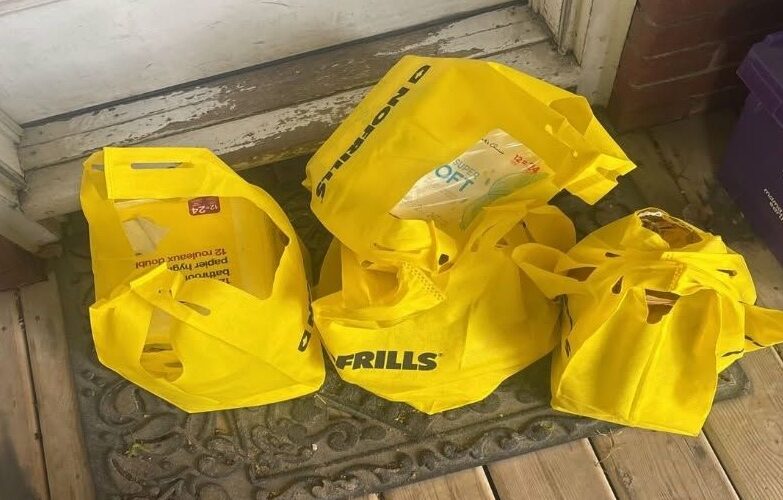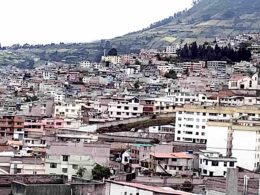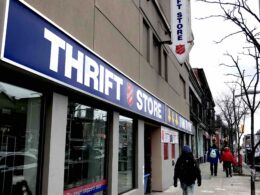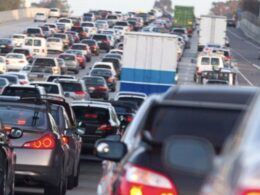We came home Saturday night, my six-year-old and I, after visiting my parents. The moment we walked in, I could tell something was off. My wife sat in the living room. She looked stunned.
“They stole our groceries,” she said. The entire delivery order, gone from the porch. I tried to downplay it. “Maybe it’s a mistake,” I said. “Did they make the delivery at all?” She showed me a picture they send you from the delivery app: yellow bags in front of our door.
We’d had things stolen before. But this felt different. You can understand missing bikes or stolen Amazon packages: someone is trying to make a buck off petty crime. But food is different.
I kept asking questions. “Why leave it outside so long?” “Why not bring it in sooner?” But she wasn’t hearing it. “That’s not the point,” she said. “They took the toilet paper.” That’s what stuck with her. There were a number of bags, and the person took them all, but they also took the time to take a big awkward package of toilet paper. And suddenly, my questions felt hollow.
Our street never felt dangerous. It still doesn’t. There’s a church on the corner where families congregate and an elementary school where children play. We know our neighbourhood. But now I catch myself looking twice before leaving the door unlocked. Nothing really bad happened, and yet something clearly has. Maybe it didn’t happen to us. Maybe it’s happening around us, and we’re just beginning to notice.
I keep circling back to the toilet paper. That’s what makes this real. Someone risked being caught for six-dollar toilet paper. And if that’s normal, what’s next?
“Should we call the police?” I asked. My wife just stared at me like I was slow. This wasn’t about catching someone. It wasn’t even about theft. It was about hunger. And hunger isn’t a crime —it’s a symptom. So, what’s the cure?
My wife’s from Uruguay and this all seems familiar to her. She’s seen her own home country break down. Once industrialized and rich, it lost it all, and people started going hungry. She thinks the same is happening here.
Toronto has food bank lines. At St. Thomas Aquinas, the line bends around the corner. I’ve seen it. We all have. But how many of us still look? It’s just become routine. At the Latin American Cultural Centre, the faces in line don’t look homeless—they look like neighbours. It used to be that if someone needed to ask for food, other things in their life had already collapsed. These folks in line don’t look like they’re suffering personal tragedy; they just need more food than they can afford to buy.
We didn’t file a police report. We knew it wouldn’t matter. The police can’t solve hunger. And somewhere deep down, we know: if someone is stealing groceries today, they were probably hungry yesterday.
Is this the new Toronto?







I appreciate this heartfelt sense of worry for our community. The division of wealth in Toronto and around the world is criminal.
Excellent article. Your humanistic perspective is clear and profound. Thank you for your information and contribution to the community.